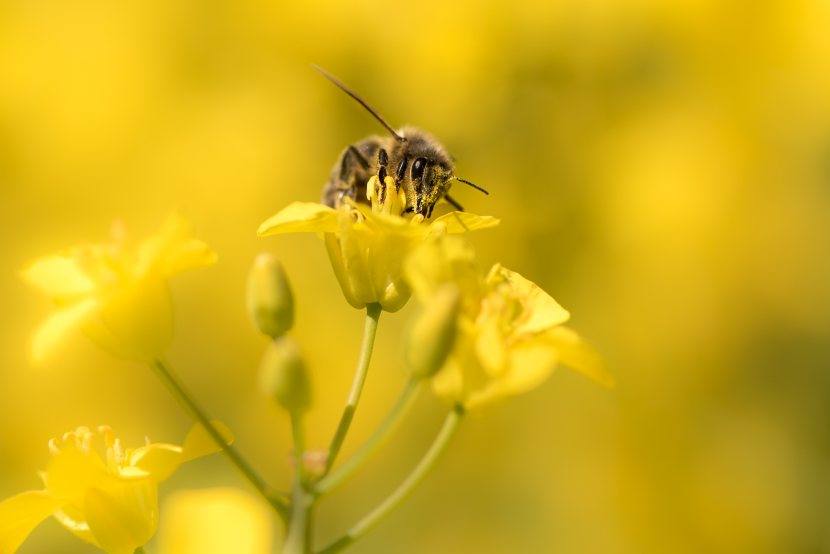
Pesticides are causing bees to lose their buzz which vibrates the flower and shakes out the pollen, according to a new study.
Stirling University researchers have said bees exposed to neonicotinoids fail to learn how to buzz properly and in turn they fail to release the pollen from some flowers, such as those of crops like tomatoes and potatoes.
A study this year found a link between oilseed rape crops grown from neonicotinoid-treated seed to the long-term decline in wild bee species across the English countryside.
That research, led by the Centre for Ecology & Hydrology, examined changes in the occurrence of 62 wild bee species with oilseed rape cropping patterns across England between 1994 and 2011 - the time period spanning the introduction of wide-scale commercial use of neonicotinoids.
The scientists found evidence suggesting that neonicotinoid use is linked to large-scale and long-term decline in wild bee species distributions and communities.
'Serious implications'
Penelope Whitehorn of the University of Stirling in Scotland, who led the study in to the buzzing abilities being harmed by pesticides, said: "So bees produce a vibration – or buzz – to shake pollen out of these anthers like a pepper pot.
"The bee lands on a flower, curls her body around the anther and grips the base with her mandibles. She then rapidly contracts the flight muscles to produce the vibration, without beating her wings.
"The study adds to the now large body of evidence from lab and field-based studies that neonicotinoids reduce learning and memory in bees, impair their communication, foraging efficiency and immune systems and, crucially, reduce their reproductive success as well as the pollination services that they can provide."
The researchers took two colonies of bumblebees and split them into three groups. One control group was not exposed to the neonicotinoid thiamethoxam, but the other two groups were exposed to the pesticide. It turned out that the bees in the control group learned how to buzz more pollen out but those in the other group did not improve at all.
"The implication is the bees take less pollen back to the colonies and the colonies will be less successful, meaning there may be fewer pollinators overall," she said.
"These chemicals do have serious implications for wild bee populations in agricultural landscapes but some, notably from the agrochemical industry, still promote their use."
'Horrifying'
Emma Hockridge, head of policy for farming & land use at the Soil Association said results of recent research was 'horrifying.'
"It adds to the strong and quickly growing body of overwhelming scientific evidence which points to the damaging impact of neonicotinoid pesticides on pollinating insects, including bumblebees and honey bees," she said.
"There are a range of methods which farmers can use which do not require the use of neonicotinoid pesticides.
"Organic farmers use a system of production which has strong benefits for pollinator populations – for example a meta-analysis from Oxford University showed on average, non-organic farms have 48% more species of pollinators than non-organic farms."
